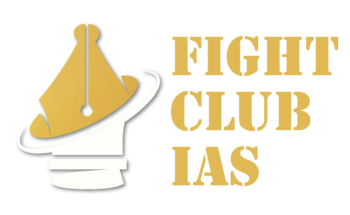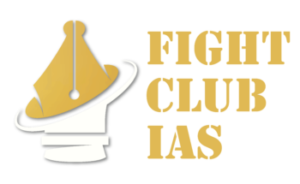Sociology and Political Science
Table of Contents
Sociology
Sociology is devoted to the study of all aspects of society. Sociology stresses the interrelationships between sets of institutions including government.
Sociologists like Max Weber worked in what can be termed as political sociology. The focus of political sociology has been increasingly on the actual study of political behavior.
Even in the recent Indian elections, one has seen the extensive study of political patterns of voting. Studies have also been conducted in membership of political organizations, process of decision-making in organizations, sociological reasons for support of political parties, the role of gender in politics, etc.
According to Marx, political institutions and behavior are closely linked with the economic system and social classes.
Political science
Political science is generally defined as a scientific study of state, government and politics. The concept of politics is central to political science. In fact, sometimes both are used interchangeably.
In general, politics is also defined as a process whereby people form, preserve and modify general rules which govern their lives. Such processes generally involve both cooperation and conflict.
Politics as an art of governance is thus engaged with the issues of public affair, conflict, multiple decisions making, compromises and consensus at different levels and, thus, essentially delineating concerns related to power and distribution of resources.
Now, let us look at some of the meanings attached to the word politics:
Firstly, politics is often considered as an art of government. The word politics is derived from the word, ‘polis’ which literally means, ‘the city state’. In this context, politics or political science is often referred to affairs of polis- means the concerns or the matters related to state and its affairs. Political science as an academic discipline has largely adopted this definition of politics or political science.
Secondly, Politics primarily deals with public affairs, but its scope extends beyond just the study of government or state. It involves both public institutions like the police, army, and courts, which serve society as a whole, and private institutions like families and businesses, which focus on individual needs and interests.
Thirdly, Politics is often defined by its focus on compromise, decision-making, and consensus. It deals with resolving conflicts through negotiation, dialogue, and arbitration, rather than relying solely on force. Scholars call politics “the art of the possible” because it aims to find peaceful solutions. Politics also involves the distribution of power and resources to ensure a smoothly functioning society.
Lastly, Politics is often linked to power and influence. Scholars see it as central to all social activities, both formal and informal, at various levels—family, groups, organizations, and global society. Politics revolves around power, the ability to influence others, and the struggle for limited resources. Political science studies this power, governance, and state structure. Like sociology, political science seeks to impart knowledge, not practical political training. Over time, political science has adopted an interdisciplinary approach, borrowing from fields like sociology, broadening its scope and methods. Understanding this shift helps in appreciating the connection between sociology and political science.
Thinker’s view
- Lipset: It is said that the disciplines of sociology and political science are closely interwoven in their analysis of power, authority structures, administration and governance.
- According to Jain and Doshi (1974), when vocabulary of political science is translated into the vocabulary of sociological analysis it is then what we call political sociology.
Similarities Between Sociology with Political Science
Firstly, political science relies heavily upon sociology for its basic theories and methods. For example, in mid-20th century Michigen social psychologists and Parsonians at Harward significantly shaped political science agendas in political behaviour and political development respectively.
Secondly, focal specialities in both the discipline borrowed from similar third-party disciplines such as economics, history, anthropology and psychology.
Thirdly, a large number of scholars such as Marx, Weber, Gramsci, Pareto, Parsons and Mosca, etc. equally have contributed to the growth and development of both the disciplines.
Relationship Between Sociology with Political Science
It may be noted that given the changing societal need and aspirations in contemporary globalised world an interdisciplinary approach is necessary to understand social problems and find answers to the problems of modern society.
Sociology is often defined as scientific study of society. We may also note that society is nothing but a complex network of various groups, institutions, communities, associations, people and their everyday life activities.
Politics and power dynamics forms integral to all of these conceptions of human lives. Notably, polity or political formations has always been the essential components of any human society.
In modern times, no society can be imagined without polity, political institutions or, so to say, any form of political life. State and governance are basic to any society both in terms of its function, development and meeting essential needs of social life such as law and order, security and development.
Sociology too essentially reflects on status of social world with a focus on social issues and on the condition of human society, the network of social relationships in an increasingly globalised interconnected world, the growing variety of political traditions, caste and politics, ethnicity, cultural background, economic conditions and linguistic affiliations.
Sociology examines various aspects of political behaviour with special focus on their social implications. This in fact indicates deeper intersection between sociology and political science.
However, both the disciplines differ in their approach. Political scientists investigate into rise, fall and changes of governments and their leaders whereas sociologists see governments as social institutions, political behaviour as outcome of social dynamics and leadership as social phenomena having multifarious implications for social developments.
Both sociology and political science intersect at multitude of points and provide a broader analysis of the social reality.
Thus, the similarities, between the two, are well appreciated by scholars. However, both the disciplines have differences too which also need to be critically assessed.
Sociologist most importantly talk of interaction system, be it within groups, institutions or organisations, whereas political science talk about control mechanism within such groups or organisations.
Hence, the frame of reference or perspectives of sociology and political science differ. The former primarily concerned about interactionist views, whereas later focuses on power structure, order and control mechanisms. Scholars argued that when sociological perspective of interaction system is applied to the analysis of political phenomena it tends to become political sociology.
It is in this sense that we can say that Almond Coleman’s ‘The Politics of Developing Areas (1960)’ and Rajni Kothari’s ‘Politics in India (1970)’ are earlier examples of growing political Sociology.
Resultantly, political sociology which is basically an outcome of intersection between sociology and political science, is relatively a newer branch of sociology, studies various political intuitions, associations, organisations, interest groups and multitude of power dynamics in society.
Political sociology, which we would elaborate in the subsequent section in this unit, also studies interest groups, political parties, administrative and bureaucratic behaviour, social legislations, state policies, reforms and political ideologies as its areas of the study.
Differences between Sociology and Political Science
|
Sociology
|
Political Science
|
|---|---|
|
Sociology is a science of Society.
|
Political Science is a science of state and government. |
|
Sociology studies all kinds of society, organised or unorganised. |
Political science studies only politically organised bodies. |
|
Sociology has a wider scope.
|
Political science has a narrow scope.
|
|
Sociology studies man as fundamentally social animal. |
Political science studies man as fundamentally political animal. |
|
Sociology follows its own methods in addition to usage of scientific methods. |
Political science focuses on human relationship characterised by politics. |
|
Sociology is comparatively younger science.
|
Political science is comparatively older science.
|
Political sociology
Political sociology often sees as a new, growing and burgeoning sub-field within the discipline of sociology. It is considered as a connecting bridge between sociology and political science.
Sociologists see two-way relationships between the two. Both have a give and take relationship. Various other scholars see political sociology as a marriage between sociology and political science which studies and brings critically important and newer areas as mentioned earlier which touches both sociology and political science, but could not be adequately studied by either one.
Political sociology as a sub-field develops in an attempt to overcome lacuna of behaviouralism, which emerge in 1960s in political science, by correcting its overemphasis on psychological explanation of human behaviour.
Political sociology essentially looks into social determinants, social context and more importantly an organic interconnection between politics and society to unpack social aspects of politics and its processes. It is actually in this sense that structures of society and social organs of politics became primary units of analysis in the discipline of political sociology.
Furthermore, the application of sociological tools of analysis to the political phenomena has added to our understanding of political behaviour.
This cross-bordering of both the disciplines has not only led to develop political sociology as crucial sub-field but both the disciplines have refined themselves, added to their reservoir of concepts and widen their themes and issues and applications to understand and analyse social reality embedded into human society.
Areas of research in this domain include analysis of functioning of public agencies, groups and family as an agent of socialisation. Certain other areas such as voting behaviour, political ecology and political community reflect upon themes of political functioning.
It is actually political processes through which conception of political membership, allegiance, ideological contestations, value orientation of the groups and identities are formed and transformed, and added to the growing maturity of political sociology as an intellectual discipline.
Anthony Giddens’s social theory on international relations and European studies, Weber’s analysis of spheres of life and Bourdieu’s analysis of politics like any other areas of social activity such as education and economics etc are some of the examples indicating the trajectory of growth of the discipline.
Previous Year Questions
- Discuss the relationship between sociology and political science. (2023)
Important Keywords
Sociology, Art of Governance, Political science, Jain and Doshi, Michigen Social Psychologists, Parsonians, Marx, Weber, Gramsci, Pareto, Parsons, Mosca, Frame of Reference or Perspectives, Rajni Kothari, Social theory on international relations, Lacuna of Behaviouralism and Agent of Socialisation.


